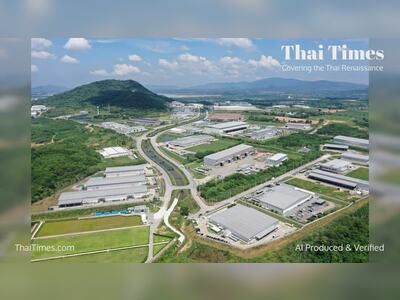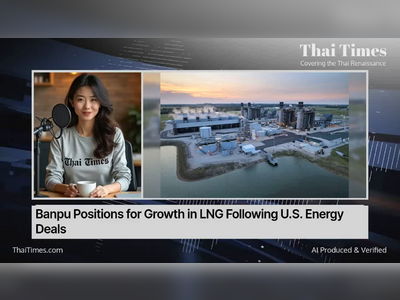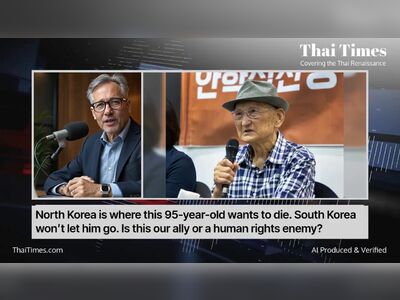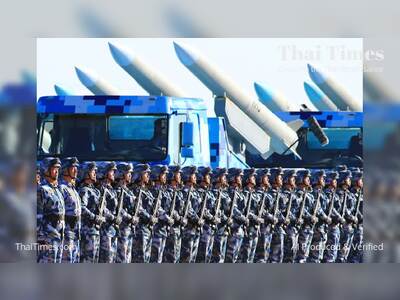Thai Government Refutes US Demand for Phang‑Nga Naval Base in Tariff Negotiations
Acting PM and ministers deny reports the US sought use of Andaman Sea base amid talks on 36% export tariffs
Three Thai cabinet ministers on Tuesday dismissed media reports that the United States had requested access to the Phang‑nga naval base in southern Thailand as leverage in ongoing tariff discussions aimed at avoiding a potential 36% export levy.
Deputy Prime Minister and Defence Minister Phumtham Wechayachai stated he had not engaged in any such conversation with US counterparts.
He confirmed that the Thai navy plans to upgrade the Phang‑nga facility, but cited budget constraints as delaying the project’s development.
He emphasised adherence to a “balanced” security posture.
Deputy Defence Minister Nattaphon Narkphanit repeated that no official offer had been received, describing the reports as speculative.
Foreign Affairs Minister Maris Sangiampongsa similarly denied any formal discussions on the issue, characterising them as unsubstantiated media reports.
A naval source confirmed there are no plans to grant long‑term basing rights to US forces at Phang‑nga, nor is there any US commitment to fund such development.
Visits by American warships to Thai ports, including Phang‑nga, occur under an existing logistics framework—not through a foreign military basing arrangement.
The source reaffirmed Thailand’s policy against hosting foreign bases on its territory.
The comments came amid broader negotiations with the US, where Thailand is seeking to avoid a substantial tariff that could reach 36%.
Trade discussions were delayed, with the US requesting Thailand to address unspecified “issues” before resuming formal talks, according to the commerce minister.
Earlier concessions have included Thailand's offer to increase imports of US goods to offset its large trade surplus.
Phumtham has also clarified that Thai security officials did not attend earlier tariff negotiations in Washington; however, this absence was not due to a US visa ban.
He noted that security-related matters can be communicated remotely.
Defence procurement has become a secondary issue amid trade strategy — with reports mentioning potential US pressure to shift from Swedish Gripen to US-built F‑16 jets tied to financing arrangements.
Phumtham described such a deal as requiring further discussion but affirmed that no commitments have been made.
Thailand is actively engaged in technical-level tariff talks with the US, under a mandate approved by its cabinet in June.
The government is preparing proposals to reduce its substantial bilateral trade surplus, estimated at approximately US$41.5 billion in the first eleven months of 2024.
A 90‑day window for negotiations is due to close on 7 July.
The Thai side’s broader strategy includes expanding US imports of energy, aircraft and agricultural products, alongside domestic reforms.
Meanwhile, official statements maintain that there is no linkage between naval base access and tariff negotiations.
Deputy Prime Minister and Defence Minister Phumtham Wechayachai stated he had not engaged in any such conversation with US counterparts.
He confirmed that the Thai navy plans to upgrade the Phang‑nga facility, but cited budget constraints as delaying the project’s development.
He emphasised adherence to a “balanced” security posture.
Deputy Defence Minister Nattaphon Narkphanit repeated that no official offer had been received, describing the reports as speculative.
Foreign Affairs Minister Maris Sangiampongsa similarly denied any formal discussions on the issue, characterising them as unsubstantiated media reports.
A naval source confirmed there are no plans to grant long‑term basing rights to US forces at Phang‑nga, nor is there any US commitment to fund such development.
Visits by American warships to Thai ports, including Phang‑nga, occur under an existing logistics framework—not through a foreign military basing arrangement.
The source reaffirmed Thailand’s policy against hosting foreign bases on its territory.
The comments came amid broader negotiations with the US, where Thailand is seeking to avoid a substantial tariff that could reach 36%.
Trade discussions were delayed, with the US requesting Thailand to address unspecified “issues” before resuming formal talks, according to the commerce minister.
Earlier concessions have included Thailand's offer to increase imports of US goods to offset its large trade surplus.
Phumtham has also clarified that Thai security officials did not attend earlier tariff negotiations in Washington; however, this absence was not due to a US visa ban.
He noted that security-related matters can be communicated remotely.
Defence procurement has become a secondary issue amid trade strategy — with reports mentioning potential US pressure to shift from Swedish Gripen to US-built F‑16 jets tied to financing arrangements.
Phumtham described such a deal as requiring further discussion but affirmed that no commitments have been made.
Thailand is actively engaged in technical-level tariff talks with the US, under a mandate approved by its cabinet in June.
The government is preparing proposals to reduce its substantial bilateral trade surplus, estimated at approximately US$41.5 billion in the first eleven months of 2024.
A 90‑day window for negotiations is due to close on 7 July.
The Thai side’s broader strategy includes expanding US imports of energy, aircraft and agricultural products, alongside domestic reforms.
Meanwhile, official statements maintain that there is no linkage between naval base access and tariff negotiations.











